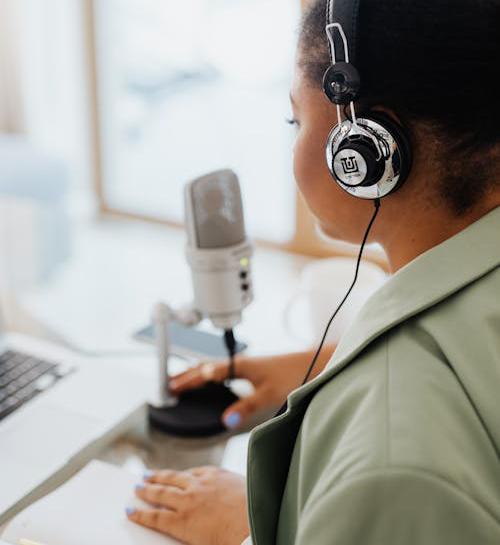Navigating the media landscape can be a wild ride, but with the right etiquette, you can ensure a smooth and professional experience. Let’s dive into the dos and don’ts of media booking to keep your interactions slick and savvy.
Do: Know Your Audience
Before reaching out, do your homework. Understand the media outlet’s target audience and ensure your story aligns with their interests. Pitching irrelevant content is a surefire way to get ignored.
Don’t: Mass Email Journalists
Avoid the temptation to blast your pitch to every contact in your list. Personalize your communication to show genuine interest and understanding of the journalist’s work. Mass emails can come off as spammy and insincere.
Do: Be Concise and Clear
Time is precious. Get to the point quickly in your pitches. Highlight the most newsworthy aspects upfront and provide supporting details succinctly. A well-structured message increases the chances of grabbing attention.

Don’t: Oversell or Exaggerate
While it’s important to highlight the significance of your story, avoid hyperbole. Journalists appreciate honesty and can see through exaggerated claims. Stick to the facts and let the story speak for itself.
Do: Provide Supporting Materials
Include relevant images, links, and offers for interviews or further information. This makes it easier for journalists to cover your story and shows that you’re prepared and professional.
Don’t: Be Pushy
After sending your pitch, give it some time. Avoid constant follow-ups or applying pressure for a response. If a journalist declines, respect their decision and move on gracefully.
Do: Respect Deadlines
If a journalist shows interest, be prompt in providing any additional information they request. Meeting deadlines is crucial in the fast-paced media world and helps build trust.
Don’t: Ignore Feedback
If you receive feedback, whether positive or negative, take it on board. It can provide valuable insights into how to improve your pitches and build better relationships with media professionals.
Do: Research the Host and Format
Not all media opportunities are created equal. Before you pitch or accept an invitation, take time to understand the show’s format, the host’s style, and the topics they typically cover. A great fit means a better interview and more impact.
Don’t: Accept Every Opportunity Blindly
Just because a media outlet reaches out doesn’t mean it’s a good fit. Avoid saying yes to everything—especially if the audience isn’t aligned with your message or the platform lacks credibility. A bad interview can hurt your reputation just as much as a good one can boost it.
Do: Have a Clear Message
Your media booking isn’t just about getting airtime—it’s about delivering value. Have a clear, concise message that aligns with your brand and resonates with the audience. Outline key talking points and practice how you’ll deliver them.
Don’t: Go Off on Tangents
Rambling in interviews can lose your audience’s attention and frustrate hosts. Stay on topic and keep your responses relevant and engaging. If you find yourself drifting, circle back to your main message.
Do: Dress the Part
Even in audio interviews, how you present yourself matters. For TV appearances, wear professional or brand-appropriate attire that looks good on camera. Avoid overly busy patterns, excessive jewelry, or anything distracting. For audio-only appearances, sit upright and dress as if you were in a professional setting—it helps shift your mindset.
Don’t: Underestimate Non-Verbal Communication
On TV or video podcasts, body language plays a huge role. Slouching, fidgeting, or avoiding eye contact can make you seem unprofessional or unprepared. Sit up straight, maintain good posture, and use natural hand gestures to emphasize key points.
Do: Arrive Early (or Log in Early)
Being on time means being early. Whether it’s a live TV segment, a podcast, or a radio interview, arriving a few minutes ahead of schedule gives you time to get comfortable, troubleshoot tech issues, and avoid last-minute hiccups.
Don’t: Show Up Unprepared
Never assume you can just “wing it.” Even if you’re an expert, unprepared speakers tend to ramble, stumble, or miss key points. If you’re working with a TV booking agency, ask for prep materials or media training to ensure you make the most of your time.
Do: Be Engaging and Conversational
Interviews shouldn’t feel like stiff presentations. The best guests sound natural, relaxed, and conversational. Engage with the host, tell compelling stories, and let your personality shine.
Don’t: Speak in Jargon
Avoid overly technical or industry-specific terms unless you know the audience will understand them. The goal is to be relatable, not to showcase how much insider knowledge you have. Speak in a way that anyone can grasp your key points.
Do: Follow Up Appropriately
If you haven’t heard back after a reasonable period, a polite follow-up is acceptable. Keep it brief and reiterate the value of your story. However, don’t overdo it; one follow-up is usually sufficient.
Don’t: Take Rejections Personally
Not every pitch will land. Understand that rejections are part of the process. Learn from them and refine your approach for future opportunities.
By adhering to these guidelines, you can foster positive relationships with media professionals and increase the likelihood of your stories being featured. Remember, it’s all about respect, relevance, and professionalism.
Maximize Your Brand’s Reach with Expert Media Placement
Looking to Book National TV Appearance or land a spot on industry-leading podcasts? Our TV Booking Agents at OTA Talent connect you with top TV, radio, podcasts, and digital media platforms to ensure your brand stands out. Whether you need a Podcast Booking Agent or Booking Agents for TV Appearance, we’ve got you covered. Let’s get your story in the spotlight!















